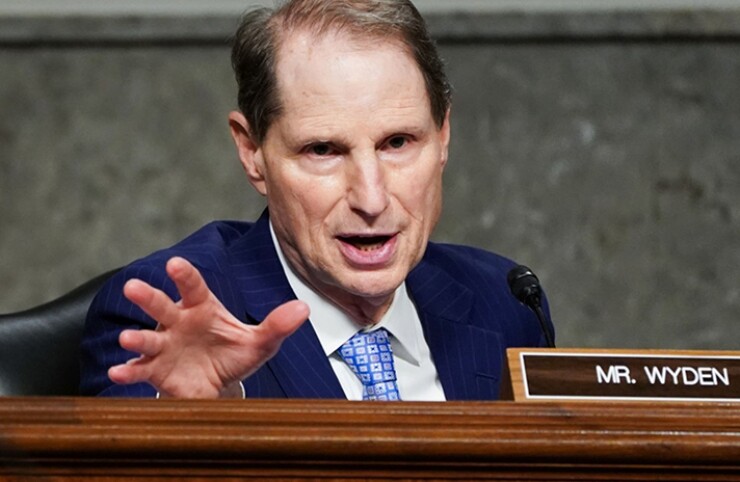A Senate Finance Committee hearing led by Sen. Ron Wyden, D-Oregon, contemplated ways to smooth funding for rural hospitals as the number in the red has spiked in recent years.
Rural hospitals and clinics across the U.S., including in Oregon, have been particularly hard hit by the challenges facing healthcare over the past several years.
Half of all rural hospitals across the country operate in the red, Wyden said. When the hospitals fail, they leave communities without local access to emergency medical care, baby deliveries and surgeries, he said.
"Too many hospitals, doctors, pharmacies and other providers in rural areas are operating on a knife edge, forced to choose between balancing the books and continuing to provide high-quality care to their communities," he said.

Within a 12-month period, the number of rural hospitals losing money jumped from 43% to 50%, the largest percentage change researchers have seen in one year, Michael Topchik executive director of Chartis Center for Rural Health said in written testimony. States with the highest percentage of rural hospitals operating at a loss include Kansas (89% in the red), New York and Wyoming (83% each), Vermont (75%), and Alabama (74%).
A study published by Chartis in 2020 identified 453 rural hospitals at risk of closure, and since then 30 of the facilities identified have closed, Topchik said. The latest data has identified 418 as being a risk of closure, which is 20% of the nation's rural hospitals, he said.
Although the hospital sector has gained traction recovering from the pandemic, smaller not-for-profit hospitals continue to struggle.
California lawmakers approved a zero-interest loan program in May 2023 to serve not-for-profit hospitals and public hospitals in significant financial distress. The state
The not-for-profit healthcare sector experienced
Despite, a relatively strong first quarter, hospital financials
Last August, financial problems forced the closure of the birth center at Saint Alphonsus Medical Center in Baker City, in eastern Oregon. The closure of the maternity ward has forced expectant mothers among the county's 17,000 residents to travel to Grande Ronde Hospital in La Grande.
"The next closest hospital in that part of Eastern Oregon is 45 miles away, along a freeway that can be closed during the winter because of icy conditions and during the rest of the year because of truck crashes," Wyden said.
Trinity Health, which acquired the hospital, closed the maternity ward in August providing only 60 days of notice, Wyden said.
Wyden called what happened to the Baker City hospital a "textbook example of what's happening in rural communities across the country."
"Between 2011 and 2021, one out of every four rural hospitals in America stopped providing obstetrics services," Wyden said. "That's 267 communities across the country where giving birth locally is no longer an option."
"I'm proposing a fresh approach with colleagues on this committee that combines steps to address economic conditions in these communities with extra financial support as long as large hospital chains don't take the money and run," Wyden said.
Wyden wants to cut red tape on telehealth services, increase Medicare reimbursements to help rural hospitals stay afloat and update the Graduate Medical Education Program in Medicare to deal with healthcare worker shortages in rural areas.
Wyden proposed funding to expand Medicare coverage for telehealth so seniors aren't making long drives to see doctors, or depending on adult children to take time off to drive them.
"The federal government invests a significant amount of taxpayer dollars into training the health care workforce every year," Wyden said. "My challenge to the committee is to make sure those dollars are being spent in the right places."
This hearing comes at a critical time, as a number of provisions — from telehealth flexibility to continued financial support for rural hospitals and ambulance providers — expire at the end of this year, said Sen. Mike Crapo, R-Idaho, in testimony.
"The Finance Committee has come together numerous times in recent years to extend these and other must-pass policies, which ensure seniors and working families from all walks of life can continue to access the care they need," Crapo said.





